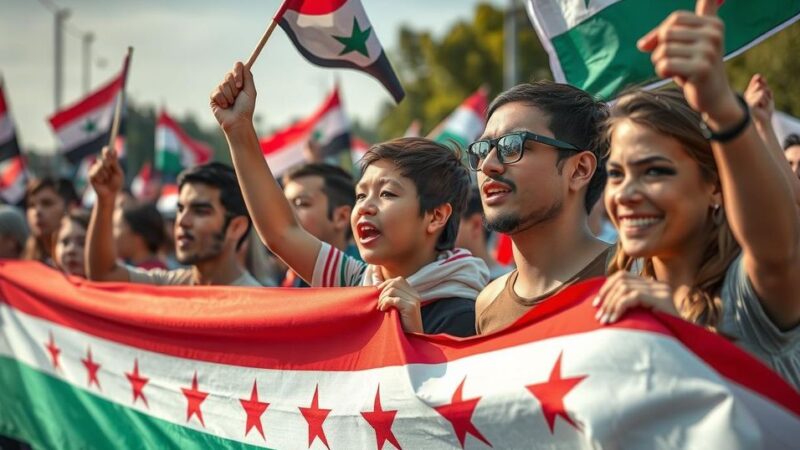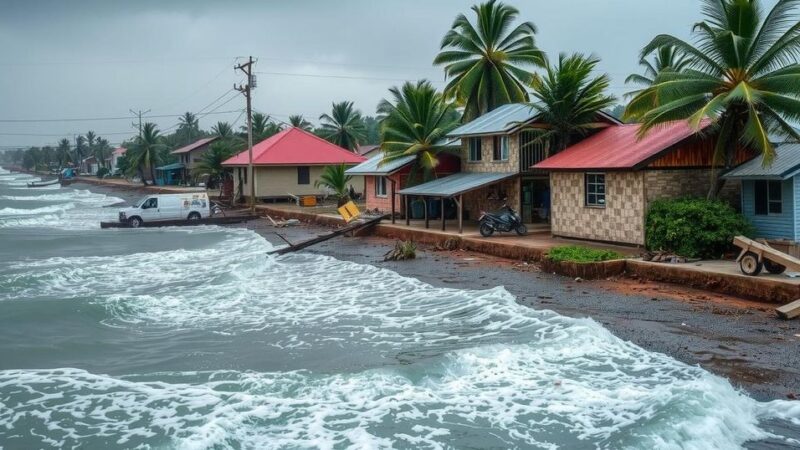Qatar’s Emir, Sheikh Tamim bin Hamad Al-Thani, has labeled the crisis in the Middle East as “collective genocide” amid Israeli assaults in Gaza and Lebanon. He criticized Israel for its military operations and emphasized the dire humanitarian situation in Gaza. His comments reflect the broader region’s escalating tensions, including conflicts with Hezbollah and Iranian involvement, amid unsuccessful efforts to broker peace with Hamas while civilian casualties surge on both sides.
Sheikh Tamim bin Hamad Al-Thani, the Emir of Qatar, has characterized the ongoing crisis in the Middle East, particularly the Israeli military actions in Gaza and Lebanon, as “collective genocide.” He emphasized that Qatar has consistently highlighted Israel’s actions and the ensuing consequences for the region, particularly the plight of Palestinians in Gaza, which he described as being turned into an area no longer suitable for human life due to ongoing military operations leading to widespread destruction and population displacement. As a participant in diplomatic efforts to halt the violence in Gaza, Qatar has expressed its frustration with Israel’s resistance to formulating a ceasefire agreement with Hamas. Recent developments indicate an escalation of conflict, with intensified Israeli assaults in Lebanon prompting retaliatory missile strikes from Iran, raising the specter of a broader regional conflict. During a speech at the Asia Cooperation Dialogue summit held in Doha, Sheikh Tamim remarked, “It has become crystal clear that what is happening is genocide, in addition to turning the Gaza Strip into an area unfit for human habitation, in preparation for displacement.” His remarks included condemnation of Israeli military actions directed toward Lebanon, which he referred to as the “brotherly Lebanese Republic.” In contrast, Israel has vehemently denied allegations of committing genocide in Gaza, asserting its military operations are lawful and necessary. The humanitarian toll has been staggering, with reports indicating that over 41,500 Gazans have lost their lives since the onset of the assault one year ago, although some observers suggest that the true figure may be significantly higher. Furthermore, Israeli incursions into Lebanon have reportedly resulted in the deaths of over 1,900 Lebanese civilians since early October, as tensions with Hezbollah have escalated amidst the conflict.
The ongoing conflict in the Middle East, specifically the escalated violence following Israel’s military engagement with Hamas in Gaza and its confrontations with Lebanese Hezbollah, has garnered international attention. The humanitarian crisis resulting from these military actions has prompted various leaders and organizations to comment on the implications for regional stability and civilian casualties. Qatar has taken on a mediating role amidst the complexities of these conflicts, advocating for de-escalation and peace while facing challenges from Israeli authorities regarding ceasefire negotiations. The Emir’s strong remarks highlight a significant concern regarding civilian suffering in the Gaza Strip, where infrastructure has been severely damaged, leading to great loss of life and mismanagement of humanitarian efforts. This context sheds light on the statements made by Sheikh Tamim and the intensified reactions in the region.
In summary, Sheikh Tamim bin Hamad Al-Thani’s declaration of the crisis in the Middle East as a form of “collective genocide” underscores a grave humanitarian situation compounded by ongoing military actions from Israel in Gaza and Lebanon. His call for accountability and an end to hostilities reflects the broader concerns over civilian casualties and the urgent need for diplomatic intervention. The conflict portrays a humanitarian catastrophe with profound implications for the stability of the region.
Original Source: www.newarab.com







